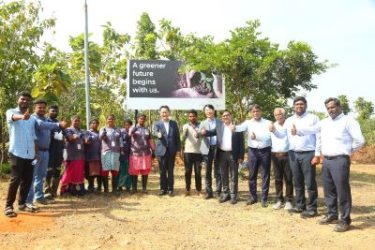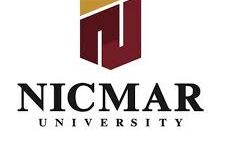· HMIF’s Initiative to foster social inclusion, preserve cultural diversity, and contribute to the socio-economic development of tribal communities across India
· HMIF involves tribal communities as custodians to its afforestation projects in Tamil Nadu and Andhra Pradesh, providing livelihood opportunities for 165 tribal families
· Advocates sustainability by conservation of India’s cultural heritage, supporting indigenous communities, safeguarding traditional knowledge for future generations
· Dedicated efforts to preserve and revitalize endangered cultural heritage such as Kattaikkuttu Sangam Theatre of Tamil Nadu, Sohrai Wall Art of West Bengal, Ottam Thullal Dance of Kerala, Kawandi making of Karnataka
· Fostering collaboration among artists, cultural organizations, and communities, creating a platform for artistic exchange and development

Gurugram | May 06, 2024: Hyundai Motor India Foundation (HMIF) continues its commitment to India and community development through initiatives that uplift, preserve and propagate India’s rich traditional heritage. The Foundation’s efforts have been focused on a wide range of areas contributing to tribal welfare and conservation, especially indigenous and vulnerable tribal communities like the Irula Tribe in Irungattukottai, Tamil Nadu, and the Chenchu Tribe in Kurnool, Andhra Pradesh. 165 tribal families have been integrated with HMIF’s social initiatives as custodians of its afforestation efforts.
HMIF has also dedicated its efforts towards conservation of endangered cultural art forms that are on the verge of extinction. The conservation efforts for preservation of Kattaikkuttu Sangam Theatre of Tamil Nadu, Sohrai Wall Art of West Bengal, Ottam Thullal Dance of Kerala, Kawandi making of Karnataka, are testament to HMIF’s conservation efforts. These initiatives have helped preserve rich Indian culture, while creating livelihood opportunities for the artists and contributing to their social wellbeing.
Speaking on the impact of these conservation efforts, Mr. Puneet Anand, AVP & Vertical Head – Corporate Affairs, Hyundai Motor India Limited, said, “Through our efforts towards upliftment of tribal communities and preservation of India’s rich cultural heritage, Hyundai Motor India Foundation remains steadfast in its commitment to social responsibility and Hyundai’s global vision of ‘Progress for Humanity.’ By integrating the members of the Chenchu and Irula Tribes in its afforestation efforts and assigning them as custodians, we not only contribute to their upliftment, economic and social wellbeing, but also strive to empower them to showcase their inherent talent and preserve their traditions. We aim to create a platform where these communities can flourish and pass on their traditional knowledge to the future generations. Our efforts underscore Hyundai’s belief in collaboration and community engagement to bring about positive change in the society.”
Tribal community upliftment and conservation
Chenchu Tribe in Kurnool, Andhra Pradesh: HMIF has identified five villages inhabited by over 150 families of the Chenchu Tribe to empower them through improvement in farming skillsets, and livelihood generation activity spanning 250 acres of land. This initiative not only contributes to environmental conservation but also integrates families from the native tribe as custodians of the agro-forest, empowering them economically and fostering self-sufficiency.
Irula Tribe in Irungattukottai, Tamil Nadu: HMIF has also undertaken a transformative initiative in the SIPCOT area near Hyundai Motor India’s factory in Chennai, integrating 15 native families of the Irula Tribe, to maintain a green-patch of over 5,000 trees and a nursery on 12.16 acres of Open Space Reserve (OSR) land. This endeavour has not only converted the barren turf into a lush green forest, but also serves as a source of income for the tribal community, promoting sustainable development and environmental stewardship.
Both these areas started off as barren parcels of land, and are now a lush green forests with flourishing agro-forestry practices, rich flora and fauna, maintained by the respective tribal communities.
Conservation of Culture and Endangered Art Forms:
Kawandi making by Siddi Women of Karnataka: HMIF has also extended support towards cultural preservation by recognizing traditional tribal art forms and imparting training, equipment and resources to women in Karnataka as part of its conservation efforts for propagating Kawandi making technique, enabling them to enhance their skills and generate income opportunities.
Kattaikkuttu Sangam Theatre of Tamil Nadu: HMIF has been actively involved in the conservation of dying art forms, such as the Kattaikkuttu Sangam Theatre of Tamil Nadu, being conserved through promotion and shows in collaboration with renowned Kattaikkuttu director and play writer, Mr. P. Rajagopal.
Sohrai Likhan Painting by Santal Villages in West Bengal: The Sohrai Likhan conservation is another project taken up by HMIF with women of Santal villages in Purulia, West Bengal. The Sohrai art is a traditional wall painting done by the women of Santal villages using their fingers on their mud homes, in preparation of harvest festivals. The art form became endangered due to rapid migration of people for livelihood and modernisation, but the conservation efforts by HMIF not only preserved this rich cultural heritage but also empowered local artisans by providing them with appropriate platforms to showcase their talent and sustain their living.
Ottam Thullal Dance of Kerala: Introduced in the 18th century by a renowned poet of the time Kunchan Nambiar, Ottam Thullal is a recite-and-dance art form of Kerala which is often laced with humour intended at highlighting critical aspects of the society. The art form was confined to a small region of Kerala, but through HMIF’s efforts, it earned a national showcase platform through Kalamandalam artist Aswathy Narayanan. HMIF has also provided three grants to the artist for promoting the art form, thus ensuring preservation and continued national visibility of this cultural heritage.
HMIF’s initiatives in tribal welfare and upliftment of art, underscore its commitment to inclusion, social responsibility and sustainable development. By addressing the needs of tribal communities and supporting traditional artisans, HMIF is contributing to the holistic development of society and preserving India’s rich cultural legacy for generations to come.
 Newspatrolling.com News cum Content Syndication Portal Online
Newspatrolling.com News cum Content Syndication Portal Online







